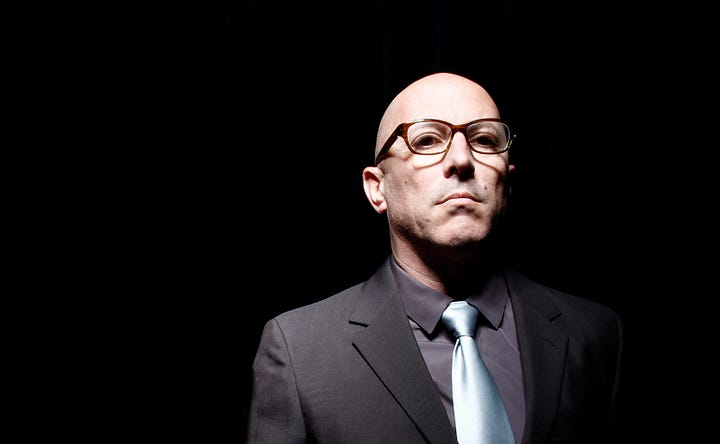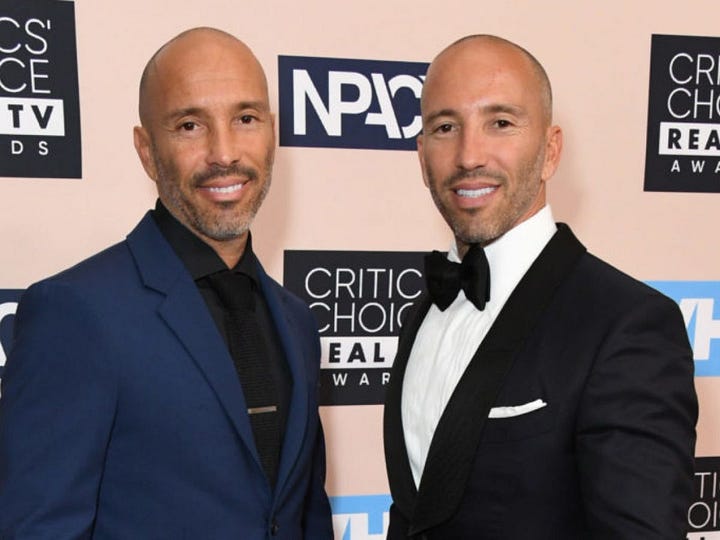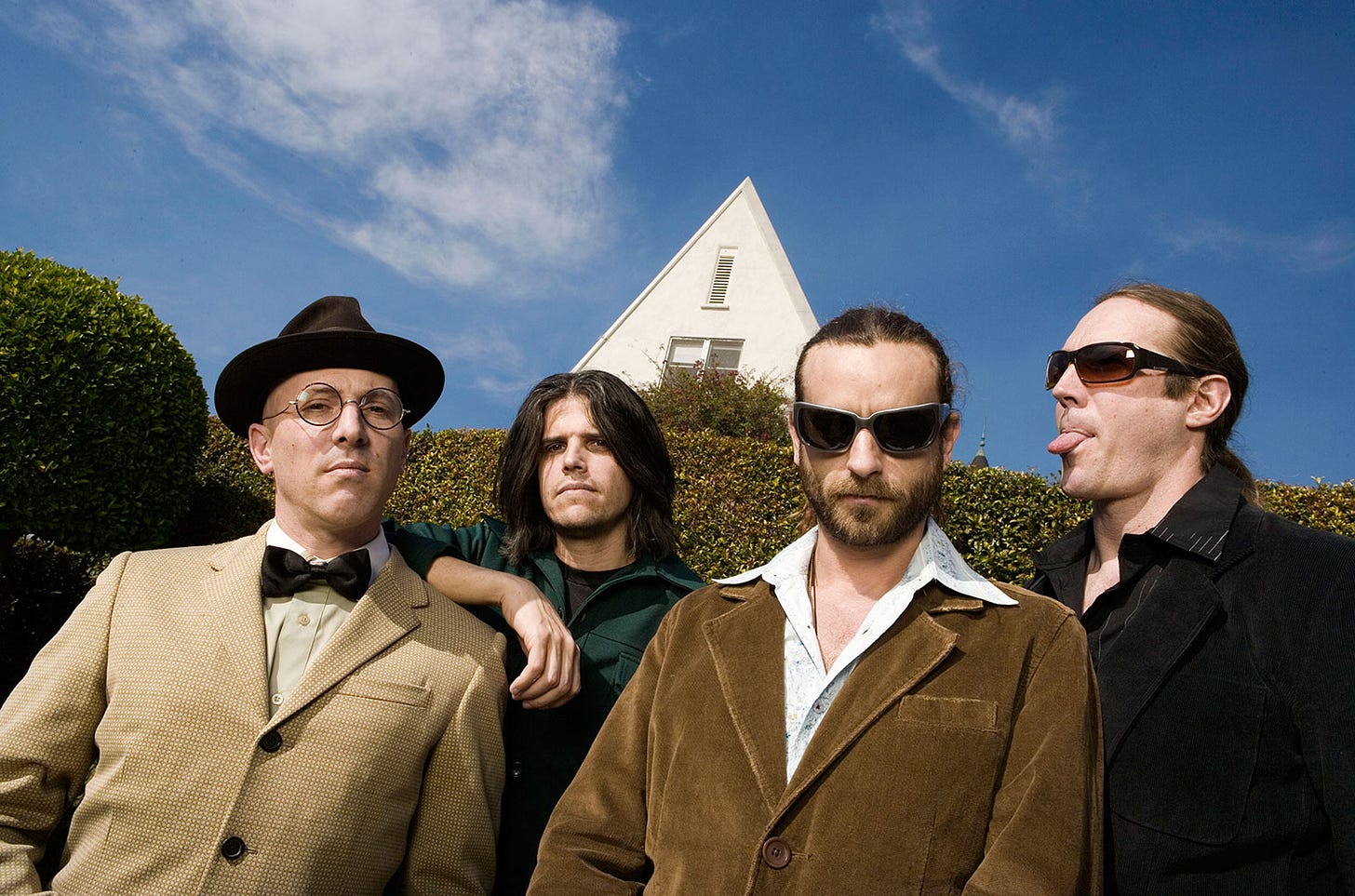Maynard James Keenan, the frontman of the infamous 90s nu metal band Tool, is bald and scary. He looks like a balder, scarier Oppenheim brother. He is the type of man who makes yoga look aggressive.


There’s a scene from the 2010 documentary Blood into Wine, about Maynard’s Caduceus Cellars in Arizona, where the infamous wine writer James Suckling comes to taste some bottles. He rips into a Syrah and Malvasia blend, which lacks complexity: “Maybe you’re trying too hard on this one,” Suckling says. It’s the type of thing even he, a powerful prick, should refrain from saying to a man with the temper of a 90s metal rocker and the skillset of a literal Brazilian jiu jitsu master.
Rather than snap that little twerp’s neck with just one eye movement, Maynard remains unfazed: “I don’t care,” he says, what seems earnestly, “I make the wines for myself.”
It would be insane to put a negative review of your wine in your own documentary…And yet, that is exactly what Maynard does. It would also be insane, as Suckling rightly points out, to make wine in Arizona. Yet that’s exactly what Maynard does.
For my brief sojourn into Chuck Klosterman drag: Tool was a groundbreaking transitional band, presenting a gnarlier horror of rock than early 90s grunge yet a more thoughtful version of the nu metal movement they were eventually dragged into. Tool’s discography is a ketamine-dusted textbook of 90s rock. Tool songs can last 11 minutes, not of pure slasher hell, but with pockets of intimacy, bursts of misanthropy, rants of psychoanalysis.
It’s easy to find a nihilistic streak in Tool’s music. The band’s moan against the numbing effects of what some term “cultural decadence” lasted from the titling of its 1992 debut EP, Opiate, to the anti-TV ranting of its 2006 single “Vicarious.” On Joe Rogan’s podcast (which I PROMISE I didn’t listen to), Maynard lamented widespread addiction to “dopamine” and pleaded with listeners to take a walk.
Yet Maynard is no Chino Moreno. He is not outlandish for mere shock value. In interviews, he comes across studied and careful. There was always an artistic consideration to Tool, no offense to Nookie. And unlike Slipknot or Korn or Deftones, Tool has managed to outlast. On their latest album from 2019, the title track “Fear Inoculum” managed to became the longest ever to land on the Hot 100, with a run time of 10 minutes 22 seconds.
Maynard is also truly a loller, in a very Gen X way. He has appeared in several episodes of Mr. Show, performs an Andy Kaufman-esque caricature in his side music project Puscifer, and, of course, trolls patron saint of the ‘stack Courtney Love. He connects with peoples’ inner Beavis and Butthead. In a way, I think he is trolling us with this wine too.
Maynard started Caduceus Cellars in 2000 in the Verde Valley of Northern Arizona, near Sedona. He later founded Merkin Vineyards downstate, near the ax-throwing bars of Tucson (A merkin, I found out, is the name for a pubic wig, which also might be the scruff on Fred Durst’s chin).
Arizona is not the first place you think of when you think of wine (that place is my mother’s fridge, after her horse loses). There is no viticultural infrastructure, no built-in audience. No one has ever asked for a Cabernet Franc from the left bank of the Colorado River.
It seems like a Sisyphean task, growing grapes in the literal desert. Yet that is exactly what attracted the rocker to the place, the sick freak. He really had no association with the state until he first visited in 1995, “As we entered the Verde Valley, my heart started to race,” he wrote in a column for the Phoenix New Times in 2012. “By the time we got to Jerome, I was vibrating. We—my inner dialogue and myself—knew this was the place. This was like that moment when you realize you’ve just met your soulmate. You just know.”
What, one wonders, does a 90s alt-rocker do in the arid climes of Northern Arizona? Are there enough wood-paneled basements to thrash in? Maynard has turned Jerome, Arizona (pop. 500) from what he has called a “a teetotaling Republican community" into the Devil’s ethically-sourced Playground, having opened a vintage vinyl shop, a barbershop, a jiu jitsu studio and an upscale pasta bar.
Rocker-turned-farmer is a narrative that writes itself. Never forget Kelis is somewhere in Temecula right now digging up a carrot. Rock blogs cover Maynard as much as People Magazine covers the four superfoods doctors DON’T want you to know about. But Maynard’s Caduceus Cellars feels different. It is not a contradiction, a betrayal of his rock persona. It is, rather, an extension of it.
As Maynard says, vineyards are like music in that they both require struggle. “This Arizona sun, it’s fucking intense, now imagine that transferred into the grapes,” he says in Blood Into Wine. “Rather than making Metallica or Slayer wines, we’re making Pink Floyd wines. You’re not going to get them in 15 seconds.”
Against truly all odds, the wine was decent. I tried a 2019 Caduceus Cellars Tempranillo, which drank as a a high tannin, medium acid wine, pretty unique for the grape. The desert notes of the wine’s origins were especially prevalent: sage and eucalyptus and tobacco combined with notes of red currant and raspberry to give it an unmistakeable presence.
But it was also $60. That is a lot of hard-earned dollars my mother had to spend. There’s still a novelty to Arizona-grown grapes, no matter what Maynard says. It’s not a sustainable business model.
I’m sorry but who ELSE can go from discussing Tana Mongeau to Tool? And you get this all for free, you dogs.





